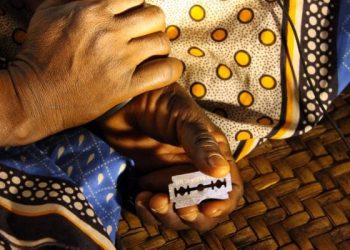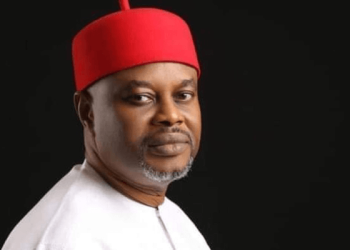For many discerning Nigerians, the taming of Boko Haram, the band of misguided Islamists operating from the north eastern flanks of Nigeria, who intent on foisting Islamic theocracy on the country, has since 2009 unleashed horrendous violence on several parts of the country that left in its wake deaths, destruction and agonies, will unarguably top the list of the enduring legacies of President Muhammadu Buhari at the expiration of his tenure. His administration will no doubt garner additional plaudits if it acts expeditiously to arrest the current savagery well-armed Fulani herdsmen have been unceasingly wreaking on different parts of the country.
Considering the implications of this unnerving ogre of violence for the country’s stability, the administration must consider well thought out measures to calm the frayed nerves of those injured by the herdsmen acts. While the authorities put their act together, this newspaper appeals for calm and understanding in the interest of the continuing unity of the country.
Under this democratic dispensation, Nigeria has been under the throes of murderous criminalities perpetrated by well-armed nomadic Fulani herdsmen, who in the course of finding grazing grounds, have unleashed mayhems and sorrows in several parts of the country. In all the six geopolitical regions of the country tell tales of these barbarisms – murders, rape, armed robberies, kidnapping; torched homelands and farmlands; wrecked businesses and places of worship – dot the landscapes.
In all the places affected, resentment and hatred have built up. Several communities in Agatu Local Government Area of Benue State are the latest victims. Not less than 300 people were reportedly killed in the reprisal invasions allegedly carried out by these herdsmen. One of the high profile victims of this barbarism was HRM Akaeze Edward Ofulue III, the monarch of Ubulu-Uku Kingdom in Aniocha South Local Government Area of Delta State. He was abducted on January 5, 2016 by suspected Fulani herdsmen and discovered 15 days later in advanced stage of decomposition.
Another is Chief Olu Falae, a one-time Minister of Finance, who was kidnapped from his farm in Akure on his 70th birthday in September 2015 and held in captivity for about a week before the police rescued him. All parts of the North also have their own sad stories to tell.
The fact that must be well established is that clashes between farmers and cattle herdsmen are not limited to Nigeria; the development is a common phenomenon in Africa and other parts of the world. However, the disturbing trend of the Nigerian genre arises from absence of committed restraint from the authorities; the impunity exhibited by the herdsmen; the recruitment and deployment of hired militias from neighbouring countries, and forceful takeover of invaded communities as grazing grounds, in some cases. A recurring puzzle in the modus operandi of the herdsmen is the unchallenged, open bearing of automatic firearms. Nigerian laws forbid regular citizens to own or bear automatic weapons, yet the Fulani herdsmen openly carry theirs.
This gives them superior fire power over their victims. The question that should be asked is why the security agencies do not move against such impunity. The Federal Government must enforce the restriction on the use of firearms, sanctioning violators without discrimination. Not doing so would force other Nigerians to resort to self-help by similarly arming themselves with sophisticated military-grade weapons. That would be disastrous for everyone and for the country.
Another confounding development that defies logic is that the Fulani herdsmen, in very many instances, boisterously admit to razing down communities and engaging in mindless massacres of defenseless people. Their familiar alibi has always been that the locals stole their cows. Why the confessing Fulani leaders have never been held accountable to serve as deterrence remains a puzzle. More puzzling is the fact that foreign militias have been found to be involved in some of these localised clashes, which many believe to be responsible for the bizarre nature of the outcome.
The development has serious security implications for Nigeria. It is comforting that President Buhari is showing strong concerns over the development. He has expressed his resolve to tackle it headlong, promising that roaming of cattle herds would stop within 24 months. Top on his government ’s temporary palliatives is the mapping out of grazing areas across the country.
The Minister of Agriculture and Rural Development, Audu Ogbeh, admitted recently that the Federal Government was importing grass seedlings to grow improved varieties of grass in Nigeria that would meet the demand of herdsmen in the northern part of the country. This is cheering news. However, this would serve as an interim measure. T
he long term measure would be a forceful government intervention for a smooth transition to ranching and other sedentary forms of cattle production as now done in many countries of the world. Herdsmen nomadic lifestyle has become an anachronism and should, therefore, be reformed into more sedentary vocations for current nomadic youths.
Our appeal to leaders of Fulani herdsmen is that they should cooperate with the plans of the various governments to transform their craft into sedentary ranches. That is the way out of the incessant crises that are wreaking heavy toll on the country.















































